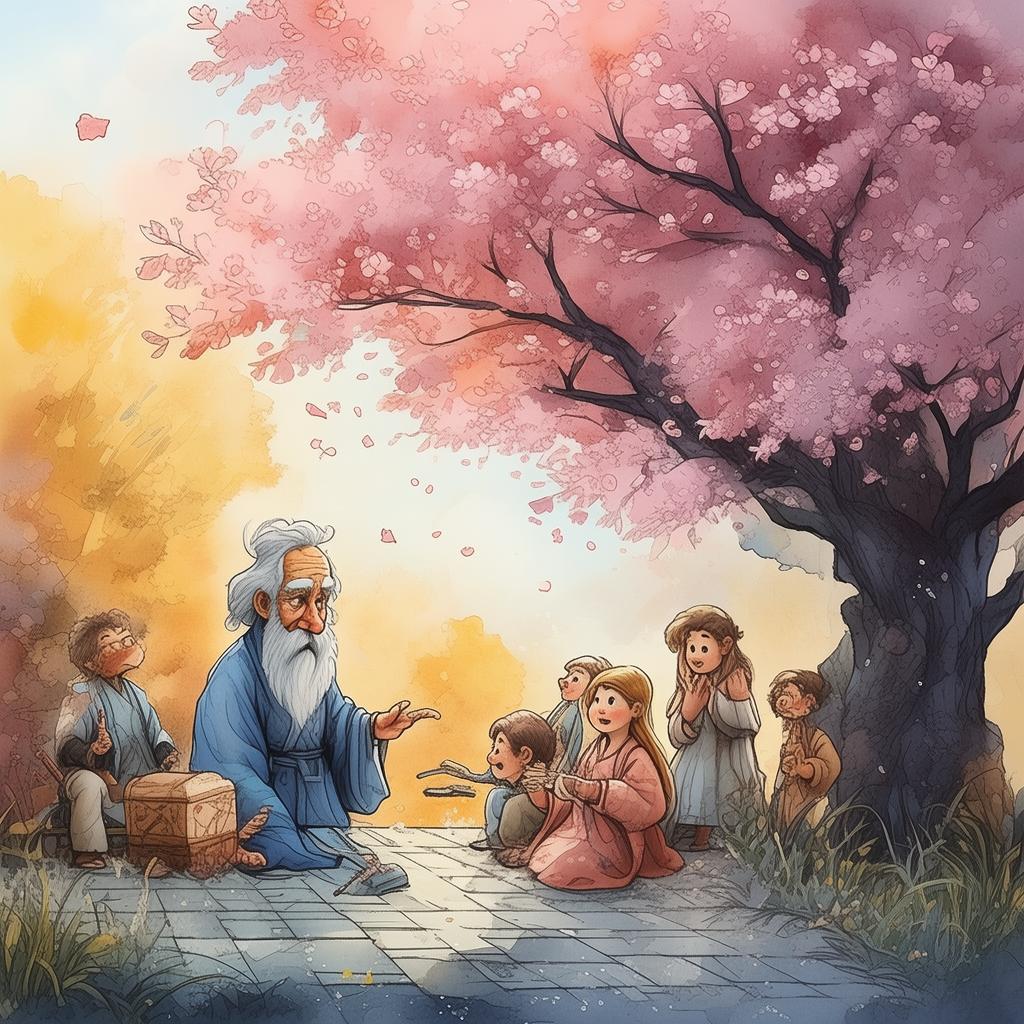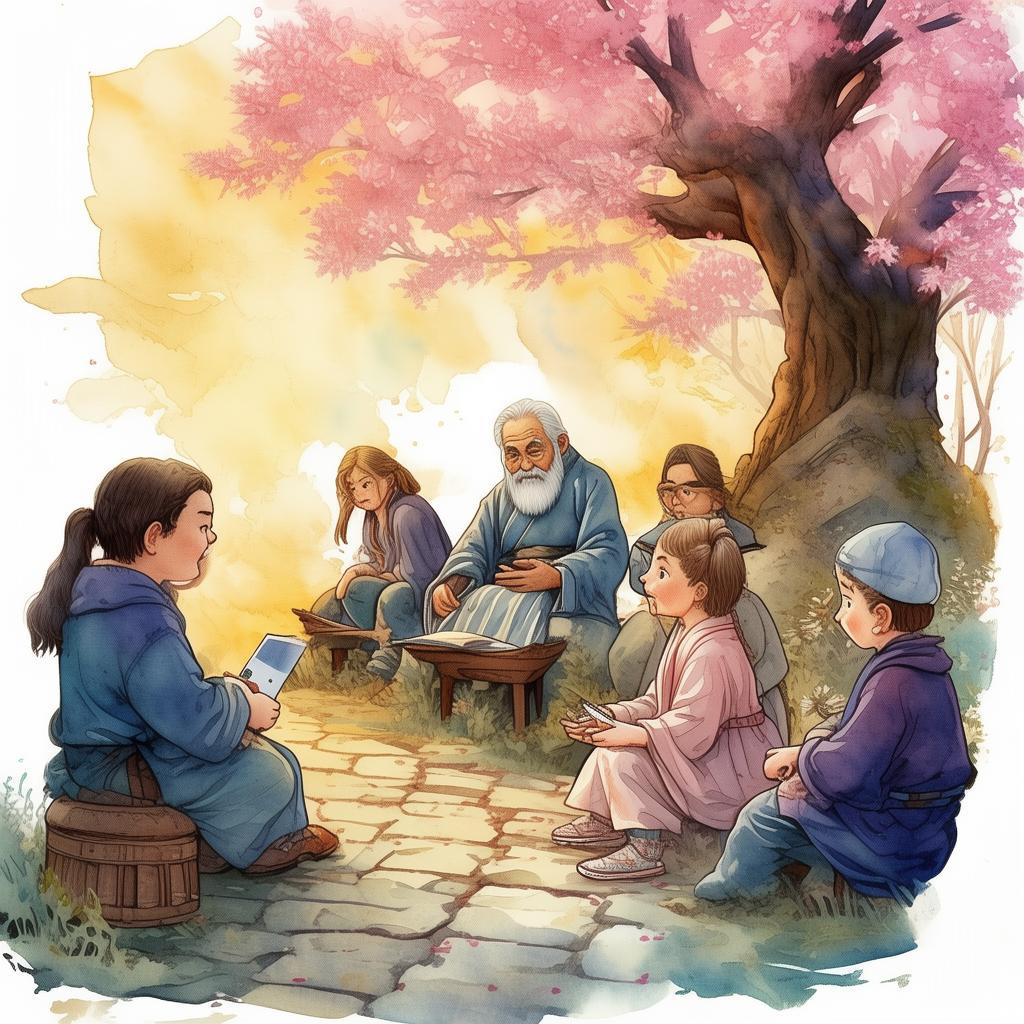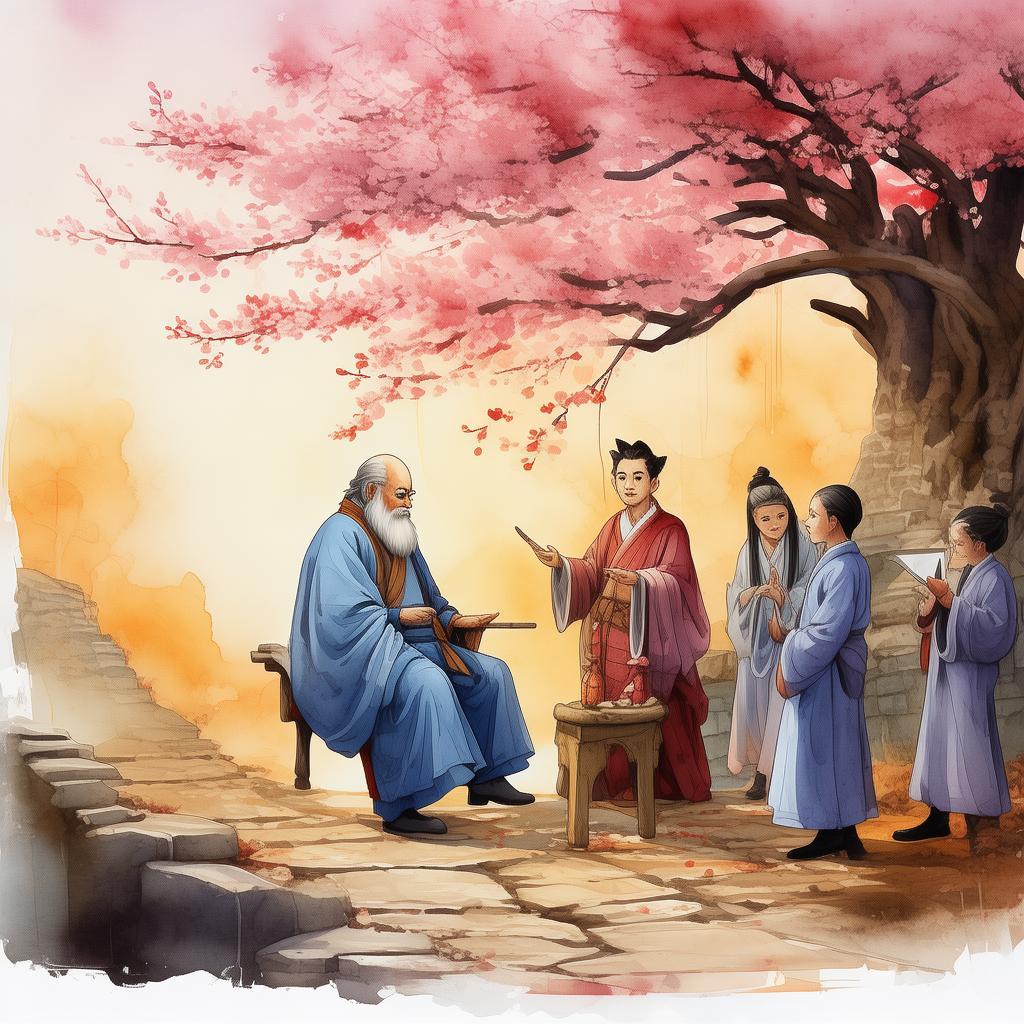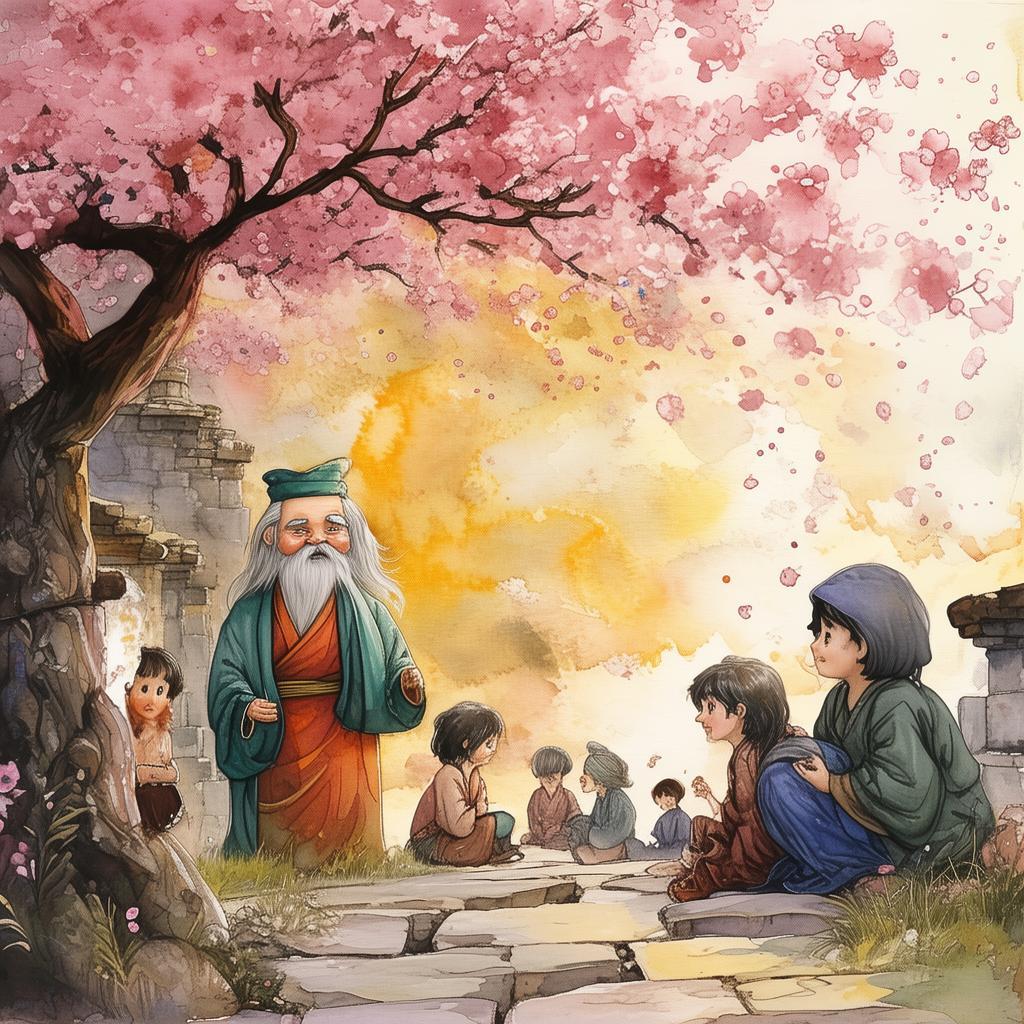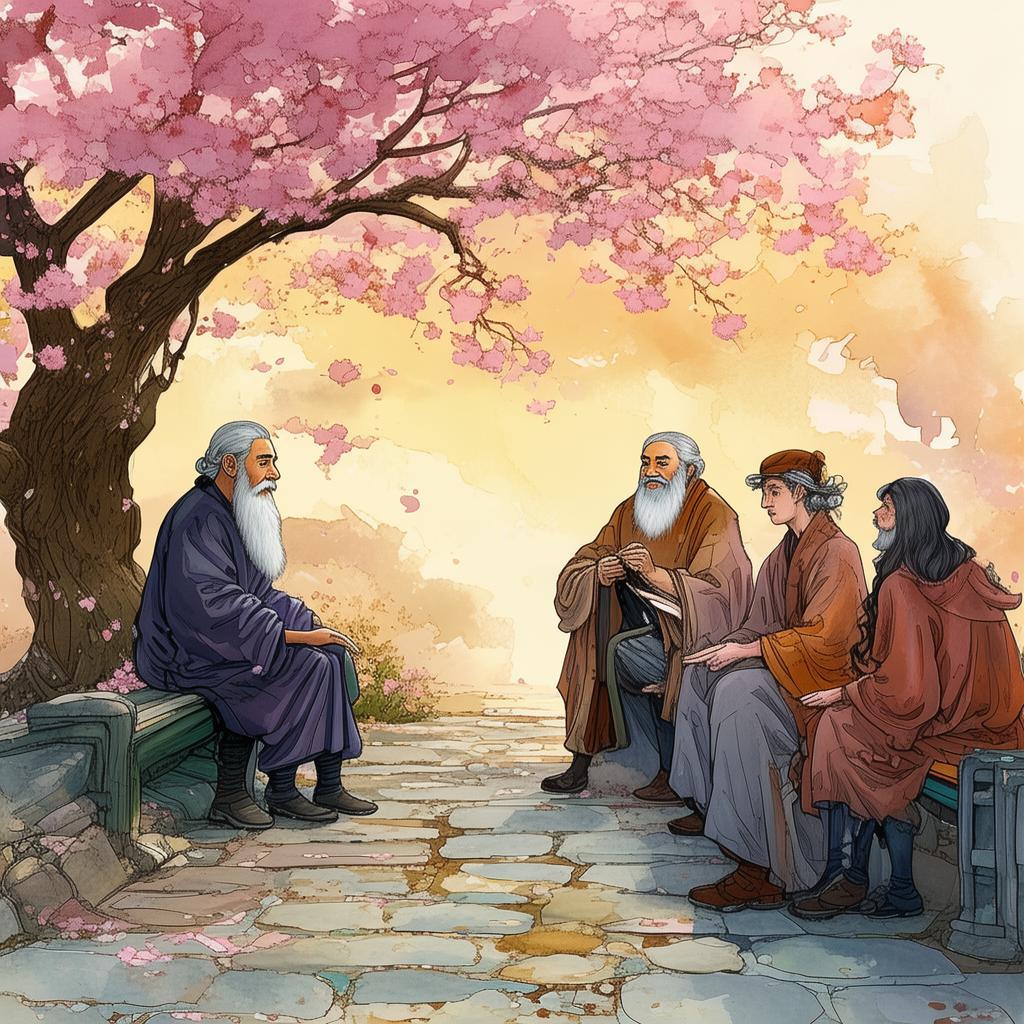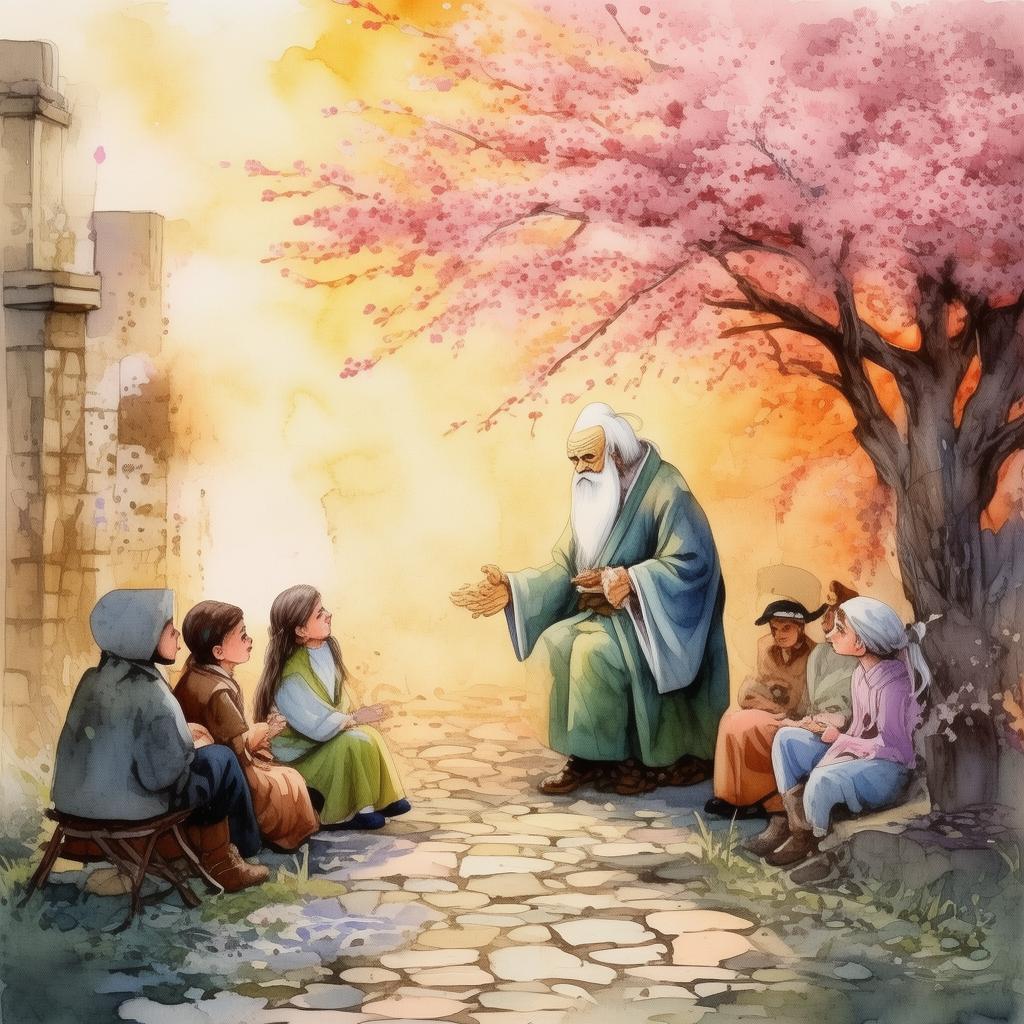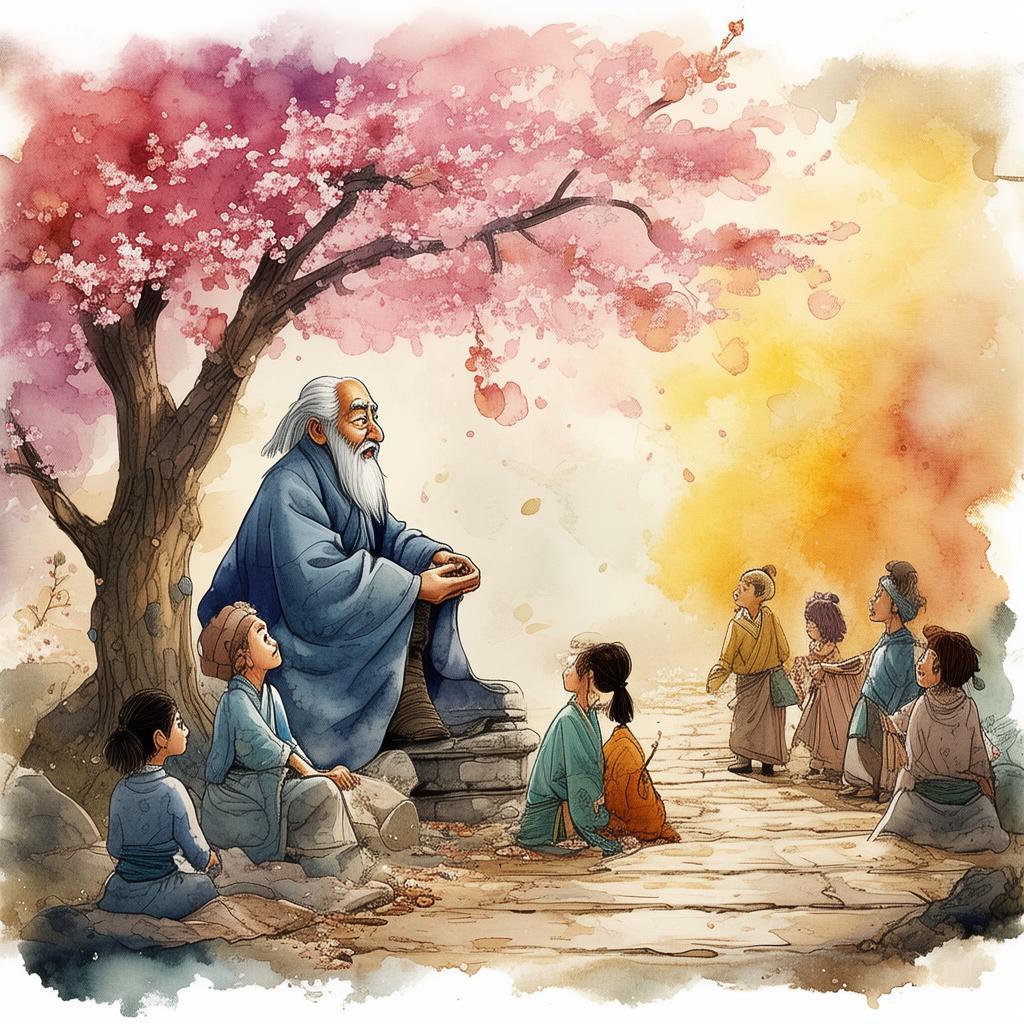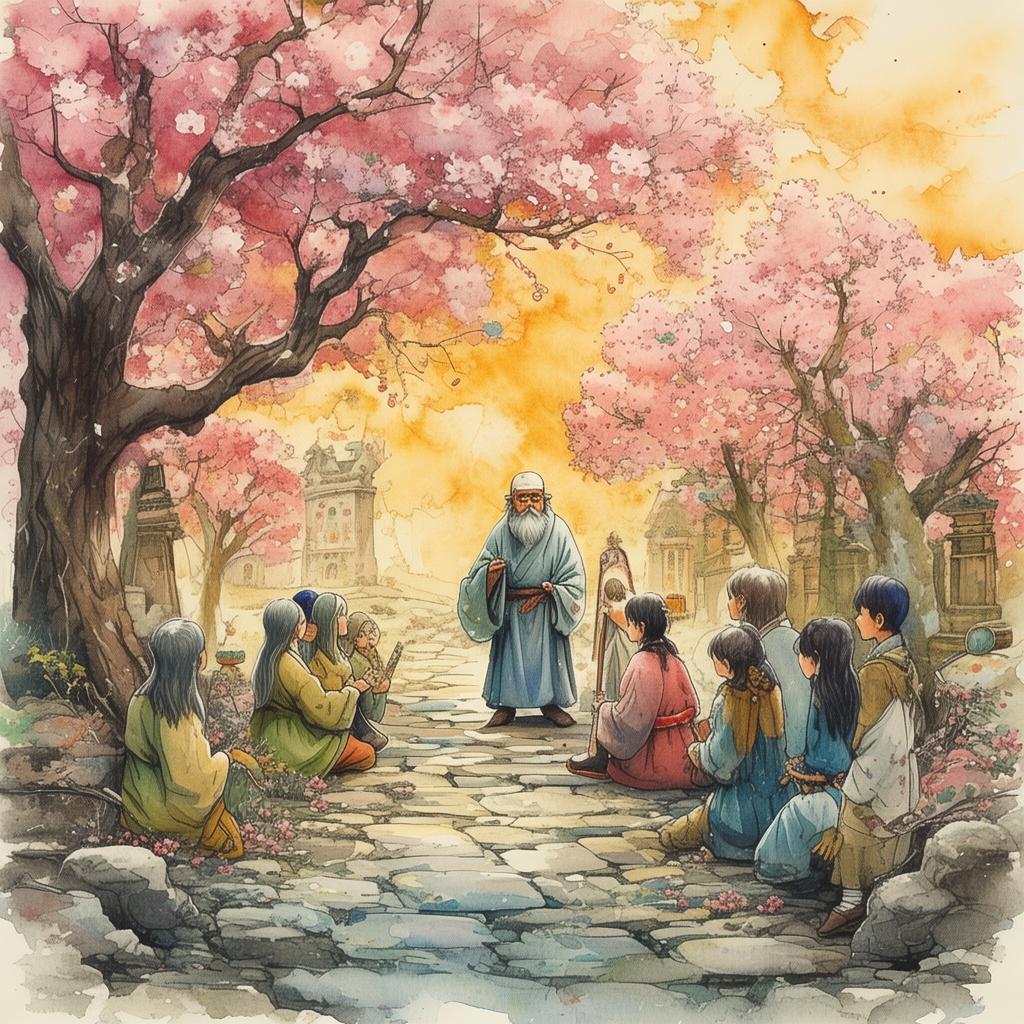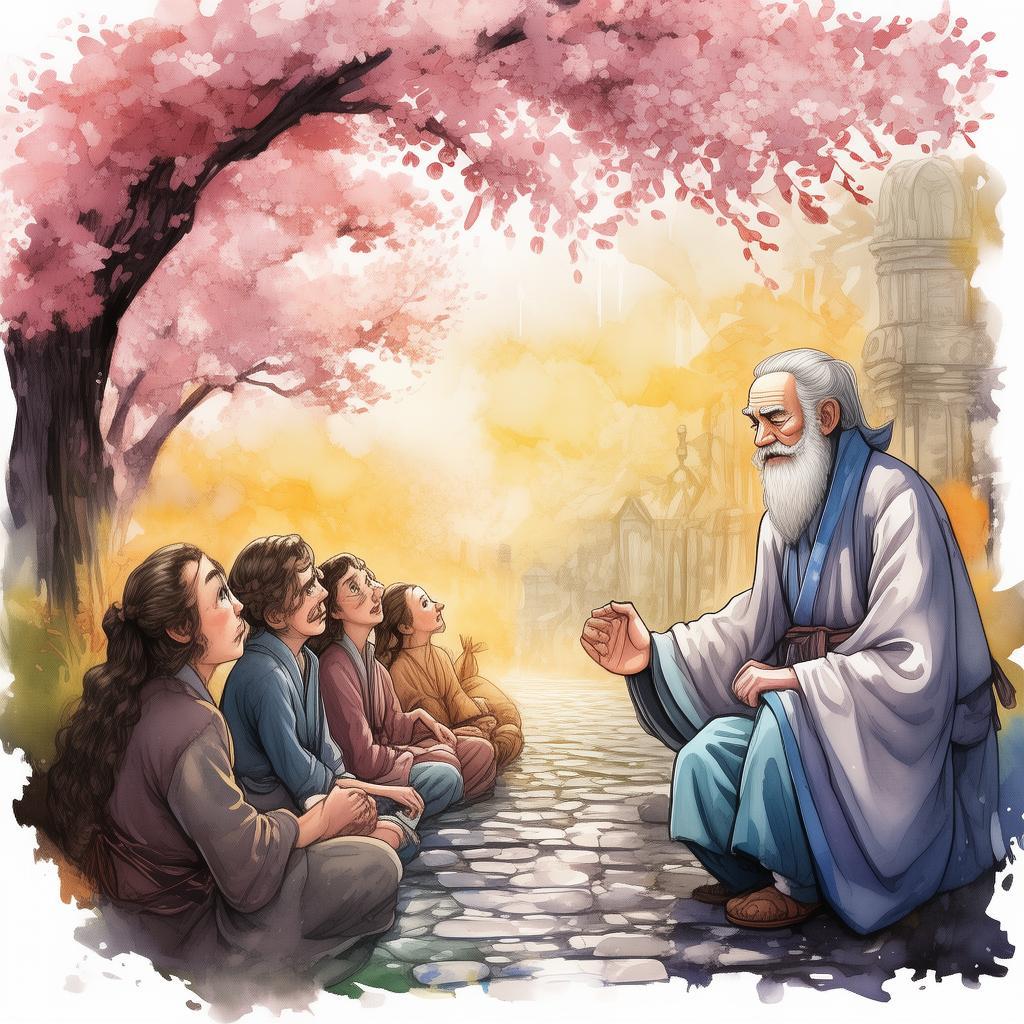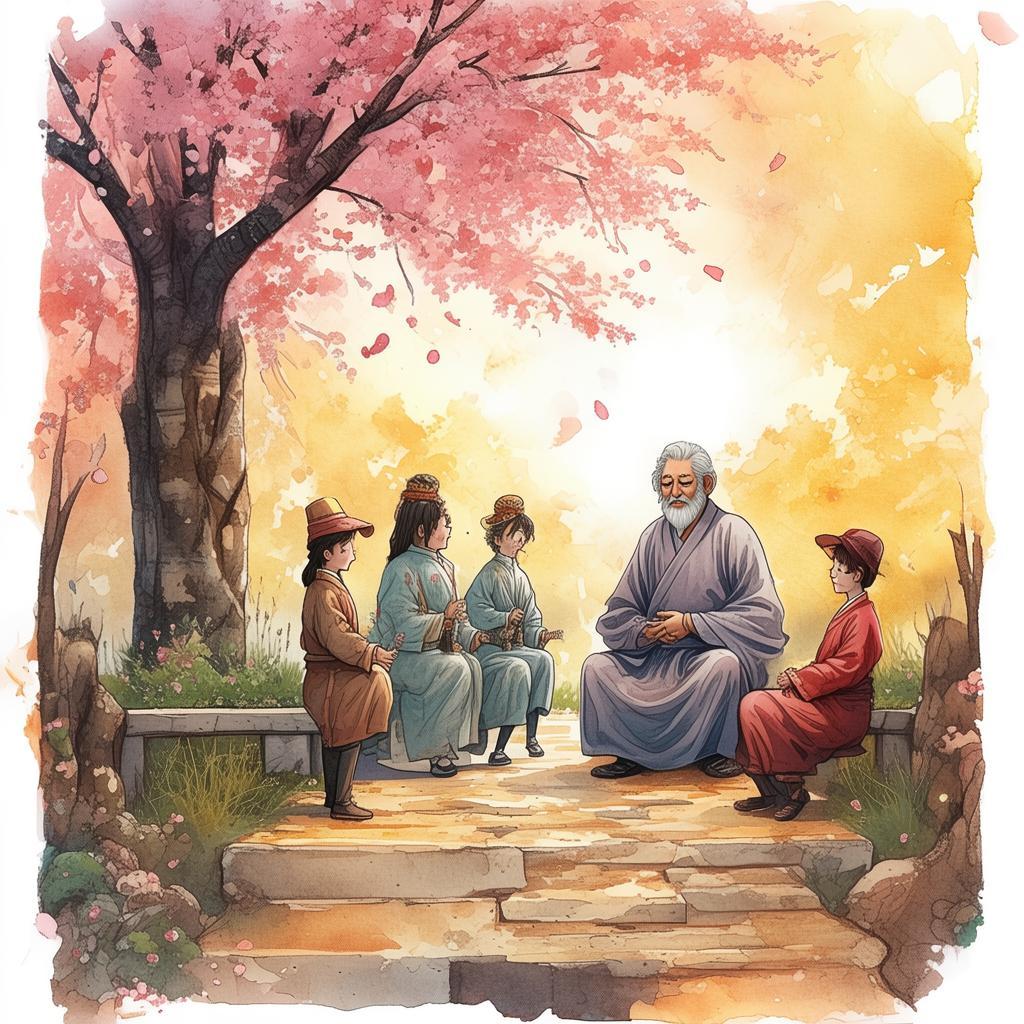Whispers of the Mind: The Taoist's Quest for Enlightenment
In the heart of ancient China, where the mountains whispered secrets of the cosmos and the rivers sang tales of the past, there lived a Taoist master named Dai Tao. His name was as legendary as the Taoist philosophy he had dedicated his life to, and his teachings were as profound as the mountains that surrounded him.
One day, Dai Tao sat beneath the ancient banyan tree, its roots entwined with the very essence of the earth, and he began his mental odyssey. It was said that the journey to enlightenment was not a physical one, but a mental one, a quest to understand the true nature of the mind and its place in the universe.
The journey began with a simple question: What is the nature of the mind? Dai Tao realized that the mind was like a turbulent sea, its waves crashing against the shore of consciousness. To navigate this sea, he needed to understand the tides that shaped its movements.
As he meditated, Dai Tao's mind was bombarded with thoughts, desires, and fears. He saw the world through the eyes of his ego, a narrow perspective that confined him to the realm of the mundane. But as he delved deeper into his meditation, he began to see the world from a different perspective.
He learned that the mind could be likened to a mirror, reflecting the world as it is, but also capable of being influenced by external forces. If the mirror was clean, it would reflect the true nature of the world; if it was dirty, it would distort the image. Dai Tao realized that his mind was like that mirror, and it was his responsibility to keep it clean.
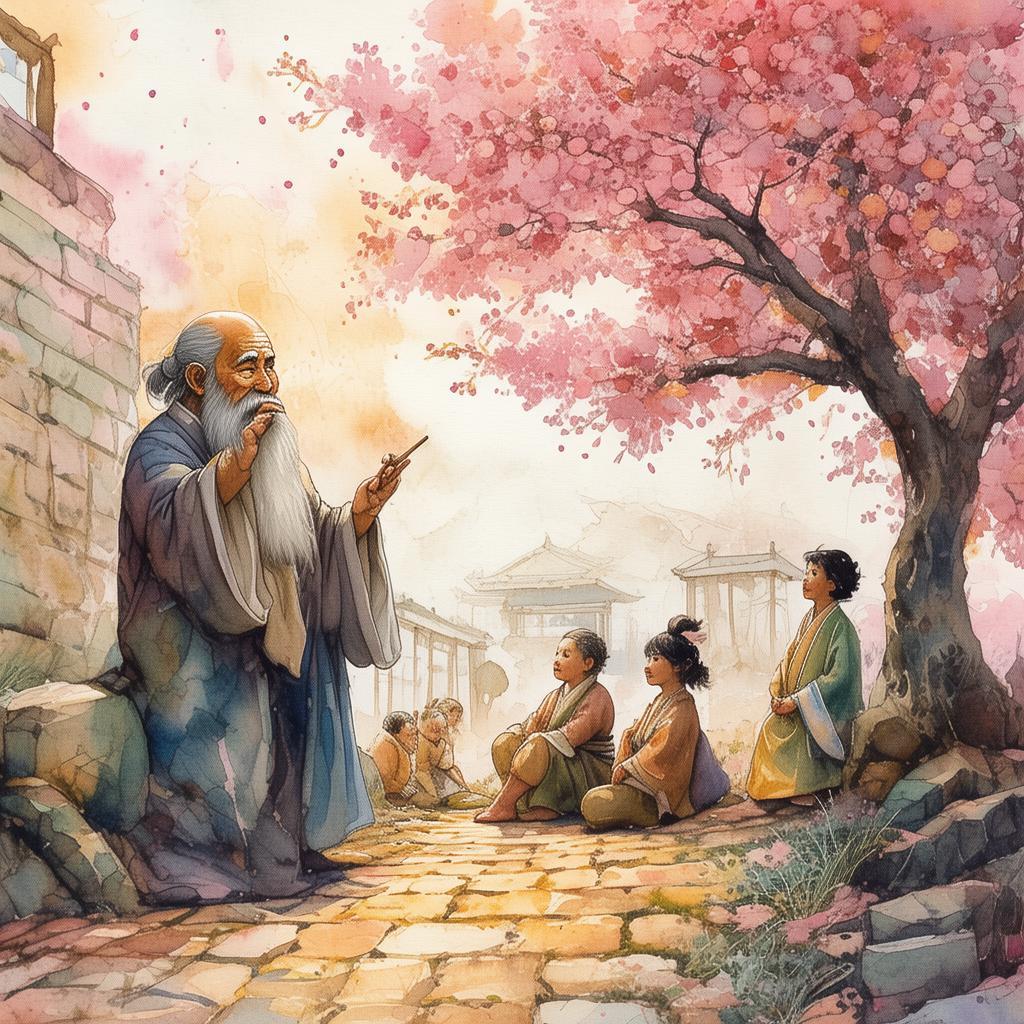
The master's journey took him to the edge of the world, where he encountered a wise old hermit who lived in a cave high above the clouds. The hermit spoke of the Tao, the Way, the path that led to enlightenment. "The Tao is not a path to be walked," he said, "but a path to be lived. It is the way of nature, the way of the universe."
Dai Tao listened intently, his mind racing with questions. "How do I live the Tao?" he asked. The hermit smiled, his eyes twinkling with ancient wisdom. "The Tao is not something you seek. It is something you embody. It is the harmony between the mind and the world, the balance between action and inaction."
The master's next stop was the bustling city below, where he witnessed the chaos of human existence. He saw people caught in the whirlwind of their desires, their minds a tumultuous sea of emotions. Dai Tao realized that the path to enlightenment was not about escaping the world, but about embracing it fully.
He began to teach others, sharing his insights and guiding them on their own mental odysseys. He taught them to see the world as it truly was, without the filters of their own biases and preconceptions. He taught them to listen to the whispers of the mind, to understand the tides of consciousness, and to find peace in the chaos.
One day, as Dai Tao meditated beneath the banyan tree, he felt a profound shift in his consciousness. The tides of the mind had calmed, and he saw the world as it was, without the distortions of his own ego. He had achieved enlightenment, not through the pursuit of knowledge, but through the understanding of the mind itself.
As he opened his eyes, Dai Tao realized that the true nature of the mind was not a mystery to be solved, but a reality to be lived. He had transcended the human condition, not through escape, but through embracing the fullness of life.
And so, the master continued to teach, to guide, and to inspire. His legacy was not in the words he spoke, but in the lives he touched and the minds he transformed. For in the end, the Tao was not a path to be followed, but a way of being, a way of living that was accessible to all.
The Tides of the Mind: Dai Tao's Mental Odyssey was a story that would be told for generations, a testament to the power of ancient wisdom and the enduring quest for enlightenment.
✨ Original Statement ✨
All articles published on this website (including but not limited to text, images, videos, and other content) are original or authorized for reposting and are protected by relevant laws. Without the explicit written permission of this website, no individual or organization may copy, modify, repost, or use the content for commercial purposes.
If you need to quote or cooperate, please contact this site for authorization. We reserve the right to pursue legal responsibility for any unauthorized use.
Hereby declared.
